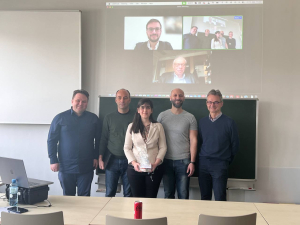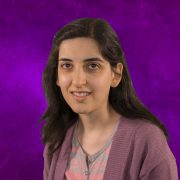Congrats to Dr. Narges Mehran on her doctoral defense
On 15.03.2024, Narges Mehran successfully defended her doctoral studies with the “Scheduling of Dataflow Processing Applications on the Computing Continuum” thesis under Prof. Radu Prodan and Univ.-Prof. Dipl.-Ing. Dr. Hermann Hellwagner, alongside the mentorship of Postdoc-Ass. Priv.-Doz. Dr. Dragi Kimovski at ITEC.
Her defense was chaired by Assoc.Prof. Dr. Klaus Schoeffmann and examined by Prof. Dr. Mihhail Matskin (KTH Royal Institute of Technology, SE) and Assoc.-Prof. Dr. Andrea Marrella (Sapienza University of Rome, IT).
During her doctoral study, she was a university assistant and contributed to the DataCloud EU H2020 project.
The abstract of her dissertation is as follows:
Latency-sensitive and bandwidth-intensive dataflow processing applications, such as the Internet of Things, big data, and machine learning, are dominant traffic generators on the Internet. Such workflows require nearly real-time processing of a continuous sequence of dataflows. To move the computation toward the network’s edge, improve communication latency, and reduce network congestion, Fog and Edge computing emerged as promising solutions to extend and complement the Cloud services. Unfortunately, the heterogeneity of the Cloud, Fog, and Edge computing (aka. Computing Continuum) raises important challenges related to deploying and executing dataflow processing applications. Therefore, in this thesis, I investigate the scheduling of dataflow processing applications. First, this thesis presents a method called Multi-objective dAtaflow processing aPplication scheduling in cloud, fOg, and edge (MAPO) that optimizes completion time, energy consumption, and economic cost, achieving up to a 28% improvement in efficiency. Second, a double-sided stable matching model named Cloud, fOg, and edge to Dataflow processing application mAtching (CODA) is introduced for deploying distributed applications on heterogeneous devices, but its limitation in considering microservices’ earliest start and finish times is acknowledged. CODA is extended with a capacity-aware matching-based algorithm, C3-Match, for scheduling dataflow asynchronous processing applications, resulting in lower data processing, queuing, and application completion times with increased data transmission time in experiments with various processing loads.


